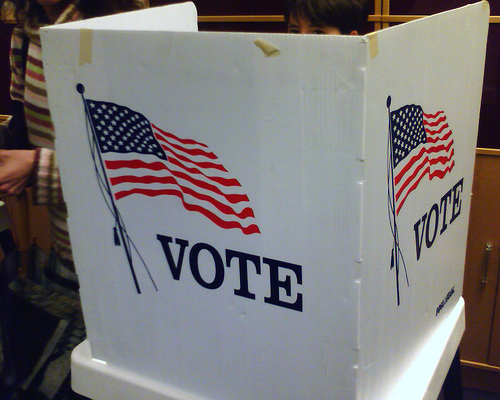ARNOLD, MO – The marquee race in the state politics has taken an unexpected turn thanks to the events in Ferguson. Rep. Jeff Roorda, D-Barnhart, is the business manager for the St. Louis Police Officer’s Association and Vice President of Shield of Hope, which is the charitable wing of the Fraternal Order of Police Lodge 15. Among other duties, he is tasked with administering the resources to fund legal defenses for officer’s accused of wrong doing in the line of duty.
Enter Officer Darren Wilson.
A Facebook user who was running a page dedicated to raising money for Officer Wilson’s defense approached Roorda and Shield of Hope. Wilson was the officer involved in the fatal shooting of Mike Brown earlier this summer. After receiving some threats, the user no longer wanted to run the fundraising operation, and approached Shield of Hope to manage the page.
Roorda’s involvement was initially met with consternation from the local and national press. The generally conservative Democrat was quickly painted as a supporter of Wilson and even decried as a racist on social media. Roorda maintained he was not choosing sides but rather standing by the legal fact-finding process in refusing to join some members of his own party in loudly and broadly condemning the officer.

Sen. Maria Chappelle-Nadal, perhaps the state’s most outspoken Democratic senator, put it pretty bluntly.
“My constituents hate him,” Chappelle-Nadal told The Missouri Times. She went on to say she would work with anyone who “doesn’t have a personal agenda, or attempts to restrict my freedom as a legislator.”
Chappelle-Nadal’s constituents may not be fan’s of Roorda, but while the media’s focus is on the Ferguson community’s reaction, many parts of the St. Louis region see things differently. Jefferson County would seemingly be one of those places.
Jefferson County is virtually devoid of an African-American population. According to the last U.S. census, only 1 percent of the population of Jefferson County is black, with a full 96.6 percent white population.
Given the stark racial divides on the Ferguson shooting, both in Missouri and nationally, Roorda’s support of both the fact-finding process and St. Louis County Prosecutor Bob McCulloch is proving to be popular in the 22nd district. A spokesperson for the Roorda campaign said much of the outrage directed at Rooda was “staged and political.”
“I believe he is pandering to his base and I don’t personally agree with him, I think his constituents support Officer Wilson and he’s pandering to them,” Nasheed said. “Now I’m a little mad about that, but I’m not a one issue person and there’s other things Jeff and I are going to have common ground on. I look forward to working with him on those labor issues because at the end of the day we just can’t agree on everything.”
While Nasheed sees it as “pandering” to the base, Roorda’s actions appear more to simply be representing his base. While St. Louis area Democrats are convinced Roorda’s involvement with Wilson would spell his doom, Roorda’s tracking numbers have slowly ticked up in the weeks since the narrative began. Last week, Missouri Republicans released a poll showing Roorda 2 points ahead of Wieland despite a distinctly anti-Democrat and anti-Nixon feeling in the area.
“St. Louis County Democrats are different than Jefferson County Democrats,” James Harris, a Republican political consultant, told The Missouri Times. “Culturally you have two places where the events in Ferguson are going to impact the election very differently. Being perceived as defending a law enforcement official and not joining this chorus of folks engaged in civil unrest is going to play much better with [Roorda’s] constituents than it would if he were running in St. Louis.”
Rep. John McCaherty (R-High Ridge) says his association to Wilson’s defense will hurt Roorda.
“I think he’s inserted himself in a position that could hurt him,” McCaherty told The Missouri Times. “He is the representative for fundraising, but he needs to take a step back. He’s crossed that line and he’s supporting police no matter what. I don’t know if they’ll react. We just want facts to come out and see justice prevail. I don’t think it’s helped his race, but it’s his job and he’s been put in a difficult position. It’s a tough situation – he has to be there to protect police.”
Roorda has a long law enforcement background, and SOH frequently benefits the families of fallen police officers, and FOP provided funds for an accused officer’s legal defense.
“[SOH] was around long before this Ferguson stuff happened,” said Kevin Ahlbrand, President of the Missouri Fraternal Order of Police. “It’s always been there to support an officer or his family for a variety of reasons. I imagine the majority of his constituents agree with him on this issue,” Ahlbrand said. “[The FOP’s] position has always been that [Wilson] gets his due process before judgments are made. Only a small number of people very, very close to that investigation know all the details.”
Roorda is one of the most conservative members of the minority party. He voted for a bill nullifying federal gun laws and lowering the minimum to apply for a CCW permit, voted to triple the waiting period for abortions, voted for a bill eradicating Sharia Law and supported several tax cut bills, but not the sweeping and controversial HB 253 from 2013. Ahlbrand said he enjoyed Roorda’s support on a number of issues, but that the lawmaker also voted “with his constituents instead of us,” on more than one occasion.
“He’s not a rubber stamp for law enforcement,” Ahlbrand said.
Many of Roorda’s votes have come with a begrudging shrug from party leaders who believe the 22nd district is a critical seat for Democrats to hold. Roorda’s conservative record is seen by many of his more liberal colleagues as a necessary evil.
Roorda repeatedly said in public that his desire was to see Wilson’s fate determined by the judicial process, rather than “by riot.” In the largely white Jefferson County, Roorda’s position doesn’t appear unpopular, although Roorda’s campaign confirmed that they have not polled on the Wilson issue.
Before the Wilson issue surfaced Roorda’s opponent, Rep. Paul Wieland, R-Imperial, seemed to have an advantage — if nothing else — on party identification in the swing district. The Missouri Times rates the district with a 3.5% Democrat advantage, but factoring in the midterm slump Democrats often face, and the rating goes to .03% Republican advantage.
In statewide races, the district has often swung the deciding votes in contests typically serving as a bellwether for the rest of the state. Except for one special election win, the seat has been represented by Democrats for decades including two of the county’s most popular figures Bill McKenna and Steve Stoll, as well as current Director of Labor Ryan McKenna. Even Governor Nixon had the seat before being elected Attorney General.
But the Governor faced criticism after saying Wilson should be “vigorously prosecuted” before charges were even filed. A decision on whether Wilson is to be charged is said to come in mid-November conveniently after the midterms.
This race is a rematch of 2010 when Rep. Wieland defeated Rep. Roorda 53% to 47% in a Republican wave election. Some are predicting this election will be a lot like 2010 with President Obama woefully unpopular and Nixon’s support potentially lagging.
When asked about the Wilson controversy, Rep. Wieland commented, “I think voters have been saddened by the events in Ferguson, as have I. But in this election, Jefferson Countians are more focused on our county in terms of attracting jobs, improving our economy, funding our schools, and preserving our freedoms. We certainly want to be good regional partners with St. Louis County, but the needs of Jefferson County come first.”
Collin Reischman was the Managing Editor for The Missouri Times, and a graduate of Webster University with a Bachelor of Arts in Journalism.







